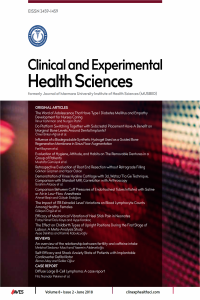Abstract
Keywords
References
- Dias TR, Alves MG, Bernardino RL, Martins AD, Moreira AC, Silva J, et al. Dose-dependent effects of caffeine in human Sertoli cells metabolism and oxidative profile: relevance for male fertility. Toxicology 2015; 328: 12-20.
Abstract
Caffeine is a psychoactive component with a chemical composition of
1,3,7-trimethylxanthine. Coffee, tea, energy drink, and chocolate are the
main sources of caffeine. There are several positive health effects of caffeine
on diabetes, Parkinson’s disease, and cardiovascular disease. However, the
relationship between caffeine consumption and reproductive health is
controversial. The aim of the present study was to determine the effects of
caffeine consumption on fertility. A literature search was conducted using
the electronic databases PubMed, Web of Science, Cochrane, and LILACS
with the search terms “fertility,” “infertility,” “fecundability,” “reproductive,”
“caffeine,” “coffee,” “tea,” and “caffeinated.” An additional manual search was
also performed for missing articles. At the end of the search, a total of 13
studies were included in the present study. Six studies reported negative
and two studies reported positive effects of caffeine on fertility by several
mechanisms such as affecting sex hormones and reducing clearance
during the luteal phase. However, no association was found between caffeine
and fertility or fecundability in five studies. According to study results
that revealed negative effects of caffeine, it may be recommended to males
and females who are planning to conceive to decrease caffeine intake, especially
from coffee. It may also be recommended to consume other types
of healthy beverages and foods without caffeine
Keywords
References
- Dias TR, Alves MG, Bernardino RL, Martins AD, Moreira AC, Silva J, et al. Dose-dependent effects of caffeine in human Sertoli cells metabolism and oxidative profile: relevance for male fertility. Toxicology 2015; 328: 12-20.
Details
| Primary Language | English |
|---|---|
| Journal Section | Articles |
| Authors | |
| Publication Date | June 15, 2018 |
| Submission Date | September 27, 2018 |
| Published in Issue | Year 2018 Volume: 8 Issue: 2 |


